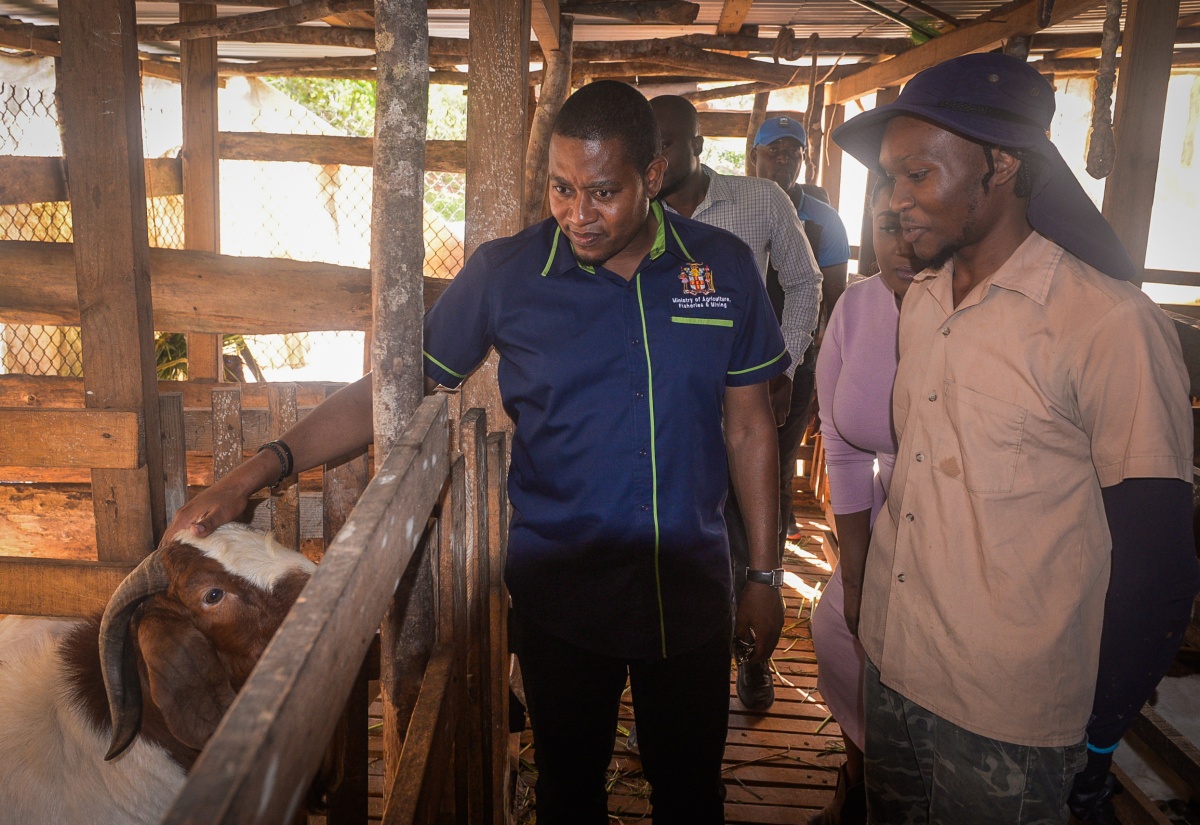Resilient Farmer Expanding Goat Rearing After Hurricane Melissa Setbacks
By: , November 26, 2025The Full Story
Delarno Small, a dedicated farmer from Bonnet District in Guys Hill, St. Catherine, is demonstrating resilience as he recovers from losses sustained during Hurricane Melissa and pursues significant expansion of his goat-rearing operation.
The 23-year-old small ruminants farmer has been involved in agriculture his entire life but officially launched his own livestock venture during the COVID-19 pandemic, starting with just two mother goats.
The October 28 hurricane brought significant challenges, with Mr. Small losing four goats – two mature mothers and two young ewes – amounting to an estimated financial setback of approximately $300,000.
Now with 27 goats remaining in his herd, he credits proactive preparations for minimising the damage caused by the hurricane.
“I wasn’t here during the [system’s passage], so my father was putting around bands [on the goat pen] and trying to strap down the roof and putting up some bags around that so that water wouldn’t blow in,” Mr. Small told JIS News.
He added, “I think that helped to reduce our loss; we would lose more if we never prepared. Leading up to the hurricane, we [were able] to get some feed… so that helped.”
Minister of Agriculture, Fisheries and Mining, Hon. Floyd Green, pledged support for farmers recovering from Hurricane Melissa, during a tour of several farms in Bonnet District followed by a Farmers’ Meeting at the Guys Hill Town Hall on November 20.
After the meeting, the Ministry, through the Rural Agricultural Development Authority (RADA), distributed fertilisers, Irish potato and vegetable seeds to farmers in the area to help restart their operations.
For Mr. Small, however, the focus is now on a strategic plan to enhance the quality and profitability of his livestock.
He currently raises crossbreeds of Nubian, Boer, and common goats, but is focused on transitioning to specialised breeding in the future.
“I am trying to expand more and trying to get better quality goats in terms of… more full-blooded species, so I can focus more on that line and more meat-producing goats, such as full-blood Boer and pure-bred Nubians, focusing more on genetics,” Mr. Small explained.
He noted that transitioning to pure-bred goats is expected to strengthen the herd and accelerate growth, resulting in faster returns.
The young farmer disclosed that through pure-bred breeding, he can increase the supply of female goats which are currently in higher demand among other farmers.
Mr. Small currently raises and sells his goats – typically weaned at three to four months – by the fifth month, with most sales going to fellow farmers.
He emphasised that goat farming is his primary source of income, driving his commitment to continuous improvement.




